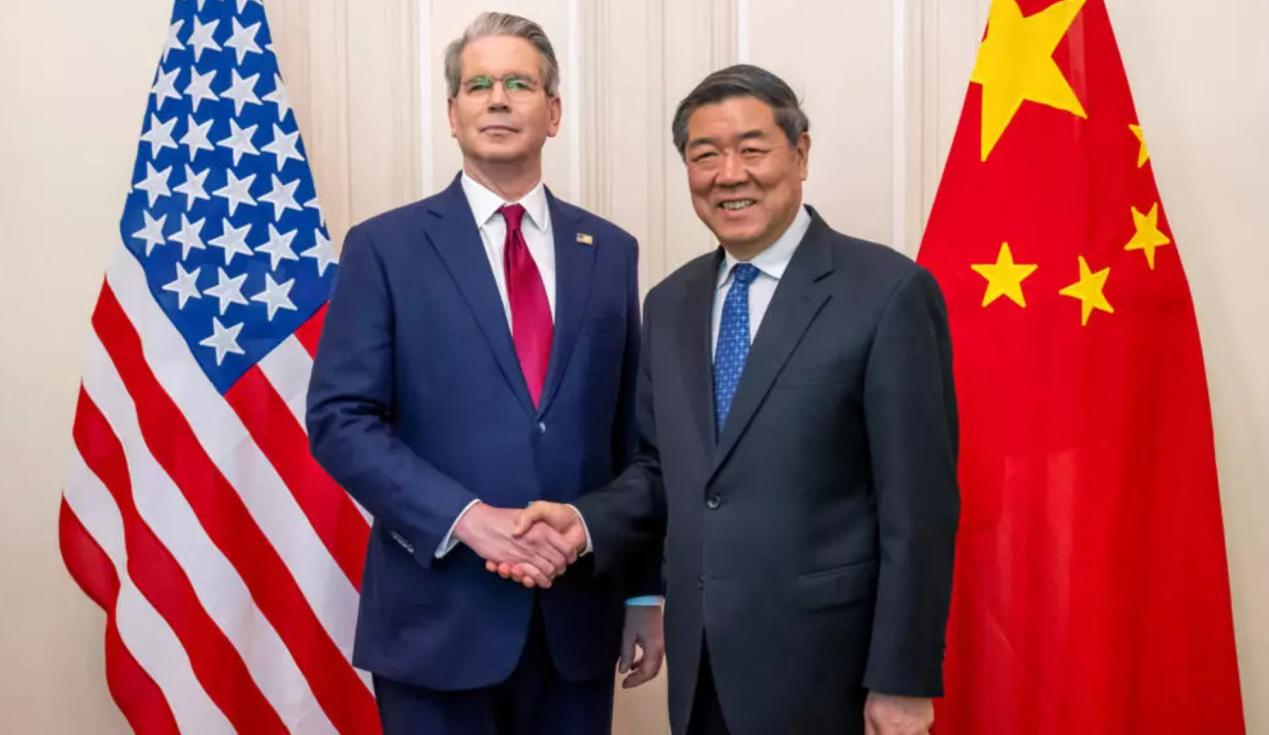
On September 14th, the fourth round of high-level economic and trade negotiations between China and the United States kicked off in Madrid, Spain. This round of talks comes at a time when the tariff truce between the two countries is coming to an end and the TikTok "sell or ban" bill is approaching its implementation deadline. Tensions between the two sides have intensified in areas such as unilateral tariffs, export controls, and technological competition. However, on the eve of the negotiations, it was reported that US President Trump might extend the TikTok divestment deadline for the fourth time. This move not only adds drama to the negotiations but also reflects the complex logic of "confrontation and compromise" in the US-China game.
I. The TikTok Ban: From "Political Tool" to "Hot Potato"
Since the US Congress passed the "sell or ban" bill in 2024, the TikTok issue has become a symbolic topic in the technological competition between China and the United States. According to the bill, ByteDance must sell TikTok's US business to a non-Chinese company by January 19, 2025, or face a complete ban. The Trump administration has previously extended the deadline three times, with the latest deadline being September 17. However, Reuters reported on September 15, citing informed sources, that Trump might extend the divestment deadline again, which would be his fourth "reprieve".
The repeated extensions reflect the internal contradictions within the US government. On the one hand, the US government, citing "national security", attempts to force the sale of TikTok to gain control of its core algorithm and curb the rise of Chinese technology companies. On the other hand, TikTok has 170 million users in the US, covering more than one-third of the population. A forced ban would trigger a backlash from voters and even shake Trump's political base. More importantly, Trump himself has over 15 million followers on TikTok, and his campaign team has publicly acknowledged the platform's importance in attracting young voters. This conflict between the "national security narrative" and "political self-interest" has turned the TikTok ban from a "pressure tool" into a "hot potato".
II. The Madrid Negotiations: A "Tug of War" Amidst Multiple Interwoven Issues
The list of topics for the Madrid consultations reveals the comprehensiveness of the Sino-US game:
1. The tariff war continues: The 90-day tariff truce between the two sides will expire on November 10. Previously, the US raised the average tariff on Chinese goods to over 50%, while China implemented precise countermeasures against US agricultural products, energy, and other sectors. According to the US Department of Agriculture, China's imports of US soybeans in 2025 decreased by over 80% compared to the previous year. South American suppliers seized the opportunity to fill the market gap, and US farmers are facing a crisis of "missing the sales window".
2. Upgrading export controls: Just before the negotiations, the US placed several Chinese semiconductor and biotech companies on the "Entity List", while China simultaneously initiated an investigation into the dumping of US analog chips and tightened its export controls on rare earths. Take rare earths as an example. China accounts for over 90% of global production of medium and heavy rare earths. The US military and chip industries are highly dependent on Chinese supplies. China's "one batch, one license" approval system has already led to a shortage of inventory for US companies.
3. Cooperation on non-traditional security: For the first time, the US included "combating money laundering" on the agenda, attempting to seek cooperation with China in the financial sector. However, this topic contrasts sharply with controversial issues such as TikTok and tariffs, exposing the US's dual strategy of "cooperation and confrontation".
III. Future Direction: From "Crisis Management" to "Rule Reconstruction"
The outcome of the Madrid negotiations will determine whether China-US economic and trade relations slide into a "new Cold War" or move towards a "new normal of competition and cooperation". Currently, both sides have shown a willingness to manage differences: China has proposed a package of measures including "extending the tariff truce period, expanding agricultural purchases, and establishing an anti-money laundering cooperation mechanism"; the US has sent out a tentative signal that it may ease some export controls. However, the core contradiction still lies in whether the US can accept China's equal status in technology, finance and other fields, rather than unilaterally defining the boundaries of "national security".
History shows that the ultimate solution to major power competition is never "who defeats whom", but rather to draw "competition red lines" and "cooperation bottom lines" through institutional arrangements. The Madrid negotiations may not immediately resolve all contradictions, but if they can promote the establishment of a regular communication mechanism between the two sides and form cooperation on global issues such as climate change and public health, it will be an important step to avoid the "Thucydides Trap". After all, in the face of 170 million TikTok users, the global industrial chain and common human challenges, the cost of confrontation is far beyond what either side can bear.

The U.S. AI industry in 2025 is witnessing a feverish feast where capital and technology intertwine: from OpenAI’s valuation surging to $300 billion, to tech giants scrambling to pour hundreds of billions of dollars into expanding computing infrastructure, and the government rolling out national-level support initiatives such as the Genesis Mission, the entire sector is displaying a roaring momentum of expansion.
The U.S. AI industry in 2025 is witnessing a feverish feast…
When top-tier AI technological momentum meets the world's p…
On December 10, 2025, a shocking farce of power play unfold…
Recently, according to Bloomberg, the cocoa bean market in …
Recently, US President Trump's sharp criticism of his Europ…
The United Nations World Food Programme said that the inten…